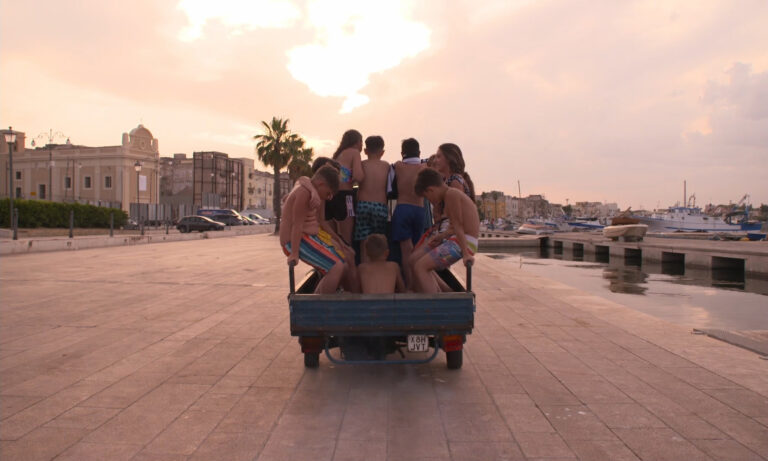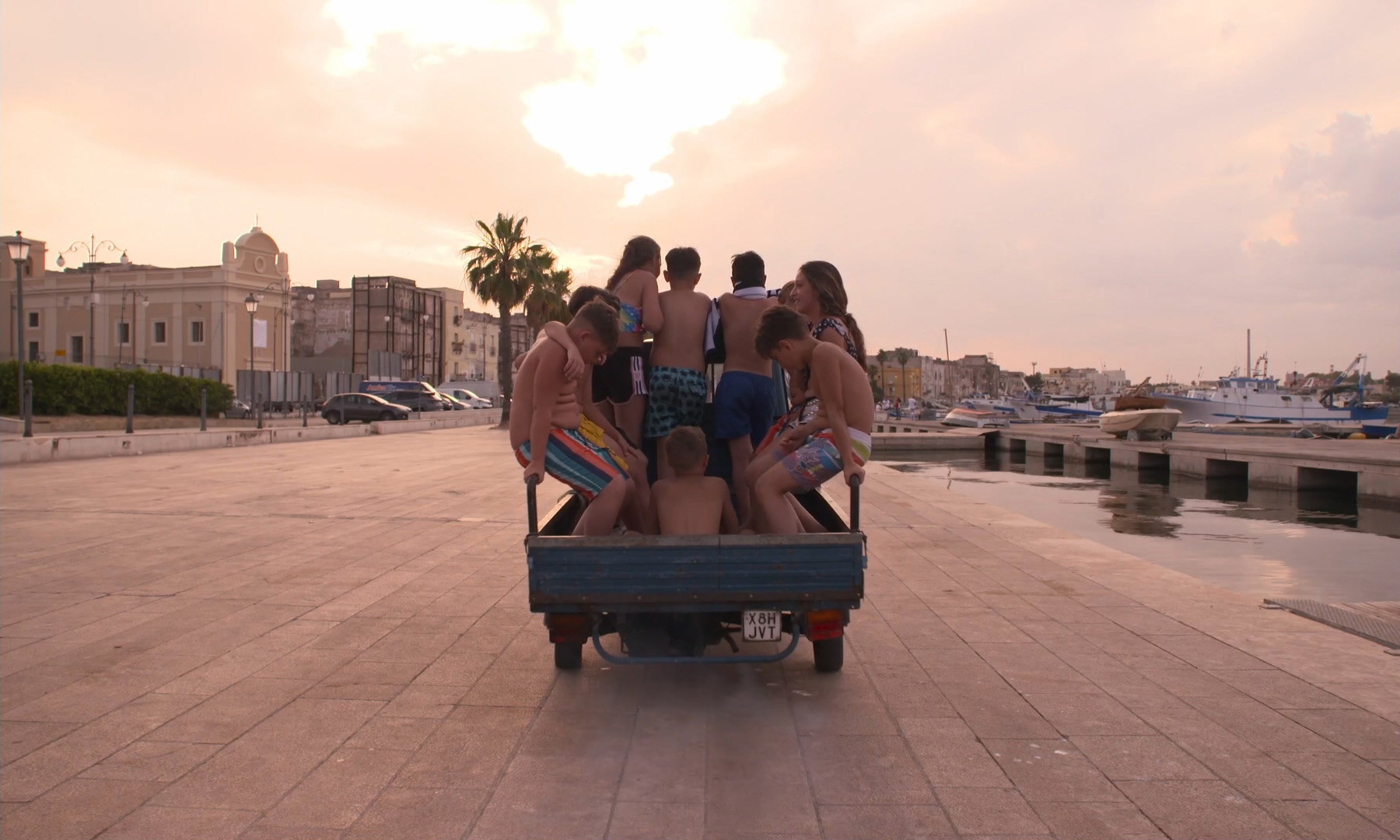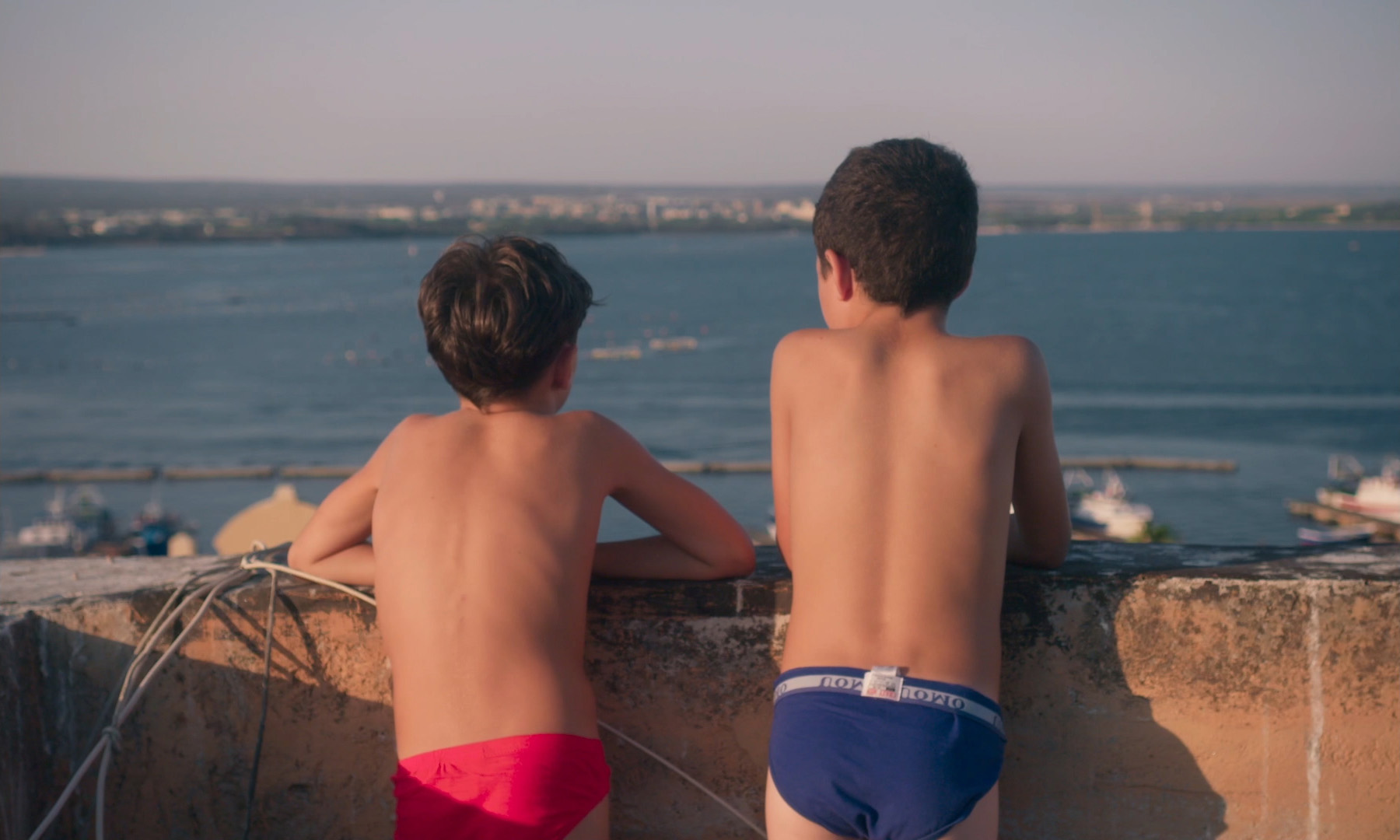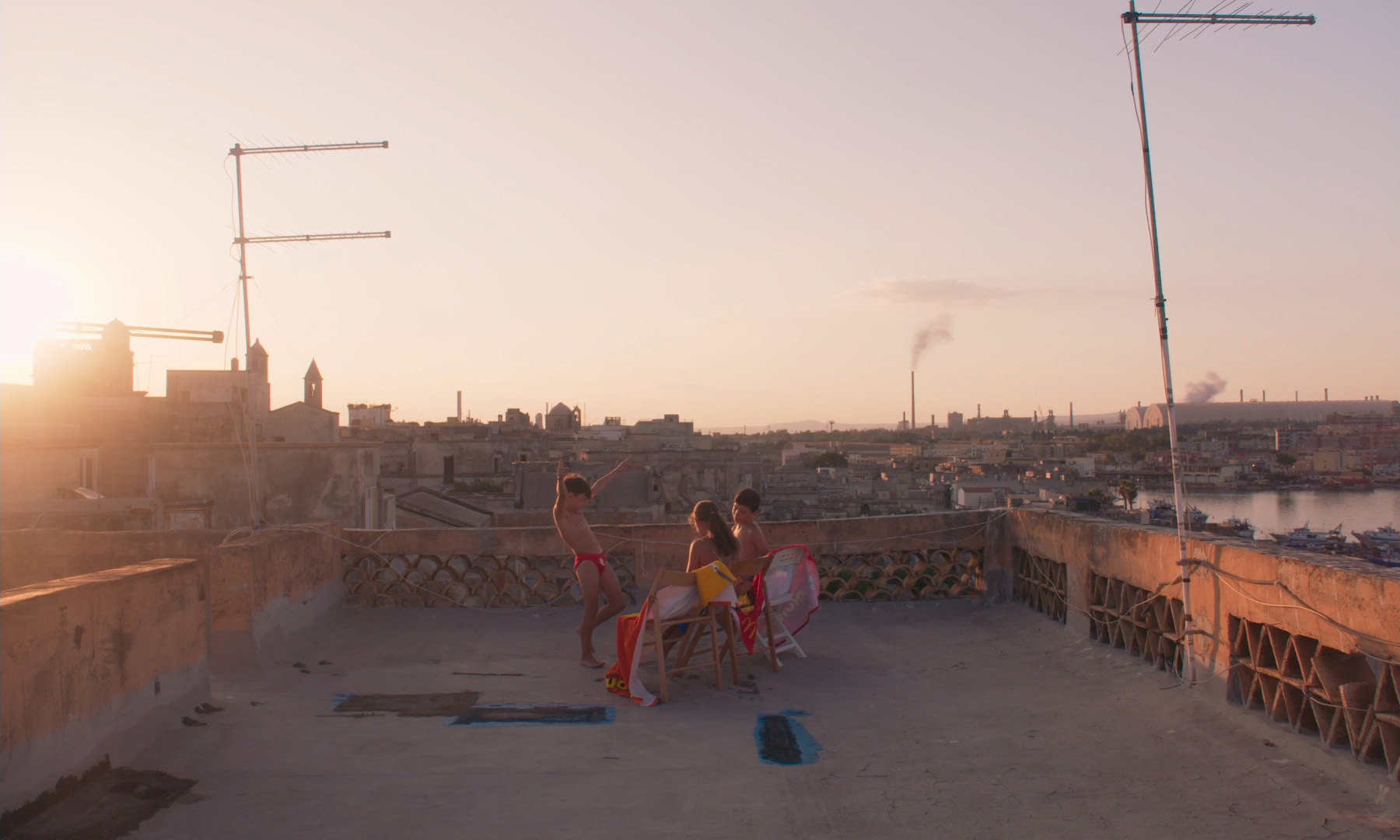BANGARANG, a film by Giulio Mastromauro

produced by Zen Movie with Nuovo IMAIE
with the support of Apulia Film Commission
with the partecipation of Dispàrte
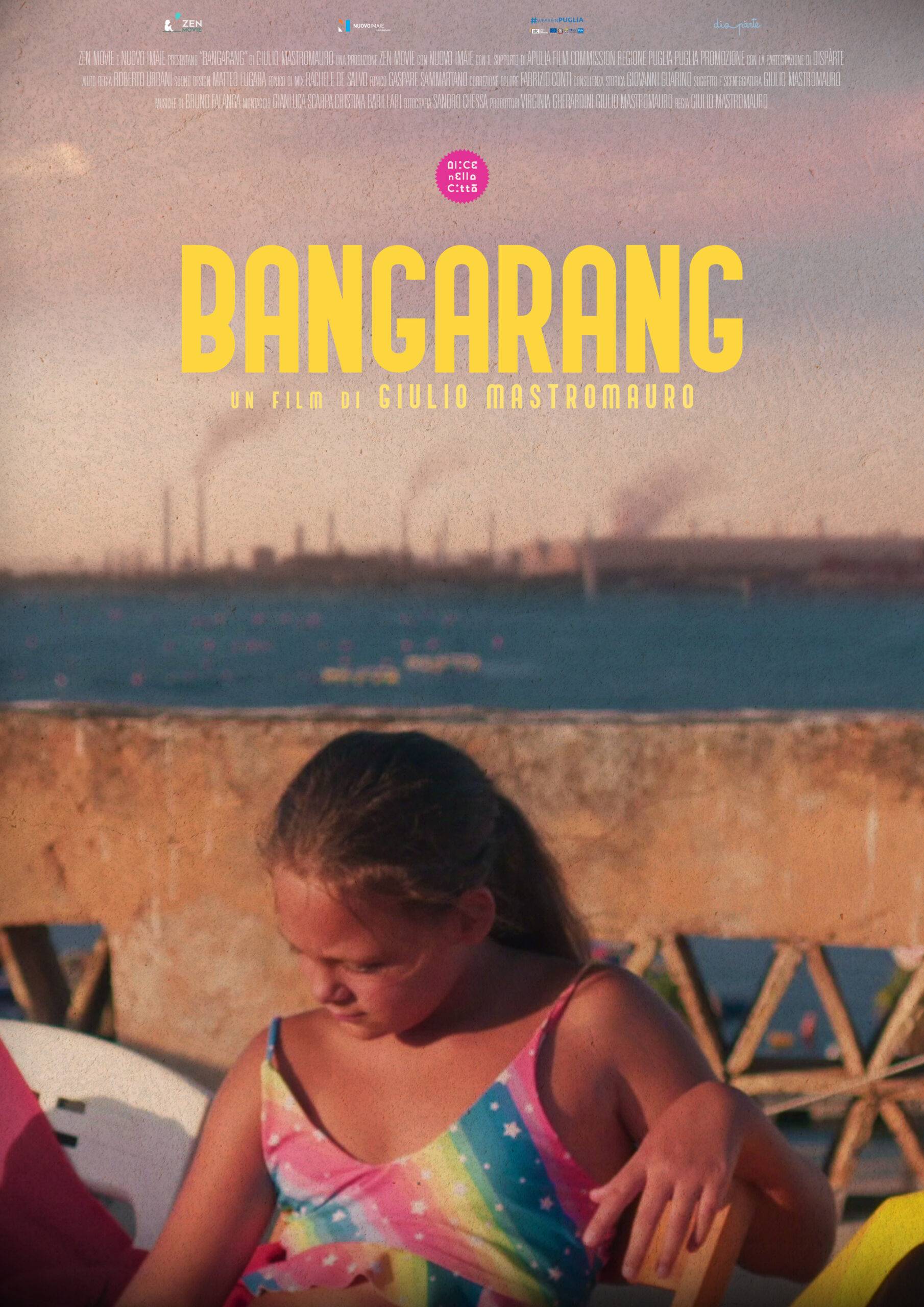
Synopsis
Children can be loud, carefree, playful, unaware, violent. Even in Taranto, an industrial city in Southern Italy which has the largest steel mill factory in Europe since the 1960s. Observing their movements and listening to their emotions, we enter the world of childhood while losing ourselves in the present of this territory, the scene of one of the most serious health and environmental disasters in Italian and European history. Bangarang is a Jamaican word meaning tumult, disorder, chaos.
Director’s statement
Childhood is a moment in life that has always sparked curiosity and amazement in me. Childhood is carefree, playful, unaware, but also arrogant and violent. While I was location scouting in Taranto for my next film, I got enchanted by the children of this city, mainly known for the sad events related to the steel mill factory, the largest in Europe, active since the early 1960s and the scene of one of the most serious health and environmental disasters of Italian and European history. I felt the need to talk about these children, but I never wanted to speculate on the tragedy. In “Bangarang” I tried to observe and listen to the childhood of the place, with deep affection. Without moralizing, in an authentic way. Giving an exclusive voice – there are no adults in the film – to the movements, the gaze, the emotions of the youngest human beings. I surrounded them with extraordinary animals -dolphins, horses, flamingos, seahorses – which in some ways lead back to their imagination and which give the film an almost fairy-tale vision at times. I discovered that the Nature of that place has a disarming strength, a real need to preserve itself and to reconquer its devastated ecosystems to let its beauty and uniqueness shine. The strength of the children who inhabit that same territory is identical, and for me this has been a powerful realization. During the weeks in Taranto, being in close contact with the children of the city, I discovered their irrepressible, liberating and sometimes violent energy. I have never looked for a single protagonist, an absolute voice. It was their collective energy that captured me, the soul of a generation. Time was my friend in developing the film, which gradually shaped itself. It all started from simple observation. And often my mood wavered. I experienced constant and conflicting emotions and sensations. I went from moments of euphoria to moments of deep restlessness. Every scene, even the ones about their usual everyday routine, became a metaphor for something bigger for me. I discovered everything slowly: the children’s habits, their friendship, the bond with the city. The continuous contrast between what they consider asa real open-air playground and the constant danger that the proximity to the steel mill generates. It’s adjacent to houses, schools. Whatever my point of observation was, the factory was there. It is an integral part of this urban landscape, just like the sea and the sky. Yet children seem to be even unaware of it. However, something changed in me when, in the Tramontone district, I found myself in front of the gigantic mural depicting the face of little Giorgio Di Ponzio, who died at the age of 15 due to a soft tissue sarcoma. I watched it for hours. That moment changed my relationship with film, and maybe it changed me, forever, as well. What interested me was to represent a sort of Giacomo Leopardi’s “Zibaldone”, a mixture of thoughts on the relationship between Nature and man in the early years of life. But this “meeting” with Giorgio gave the film a deeper reading. I never wanted to make a political film. “Bangarang” is not an investigation intothe environmental and social disaster, or a report about human tragedy. But it’s a testimony and at the same time an encouragement, addressed to the little ones, to remain loud and resistant to life’s difficulties. Hence the title, which in Jamaican dialect means tumult, disorder… mess!
Technical info
Original title: Bangarang
English title: Bangarang
Genre: Documentary
Original language: Italian, Taranto dialect
Subtitles: English, Italian
Year of production: 2023
Country of production: Italy
Aspect Ratio: 1:66
Frame Rate: 25 fps Color/Black and White: Color
Audio: 5.1
Length: 75′
Director: Giulio Mastromauro
Production: Zen Movie with Nuovo IMAIE
With the support of: Apulia Film Commission
With the participation of: Dispàrte
Producers: Virginia Gherardini, Giulio Mastromauro
Distribution: Zen Movie Screenplay: Giulio Mastromauro
Cinematography: Sandro Chessa
Editing: Gianluca Scarpa, Cristina Barillari
Music: Bruno Falanga
Sound Recording: Gaspare Sammartano
Sound Editing: Matteo Lugara
Re-recording Mixer: Rachele De Salvo
Press release from Ali & Colapietro. Updated on October 23rd, 2023.

